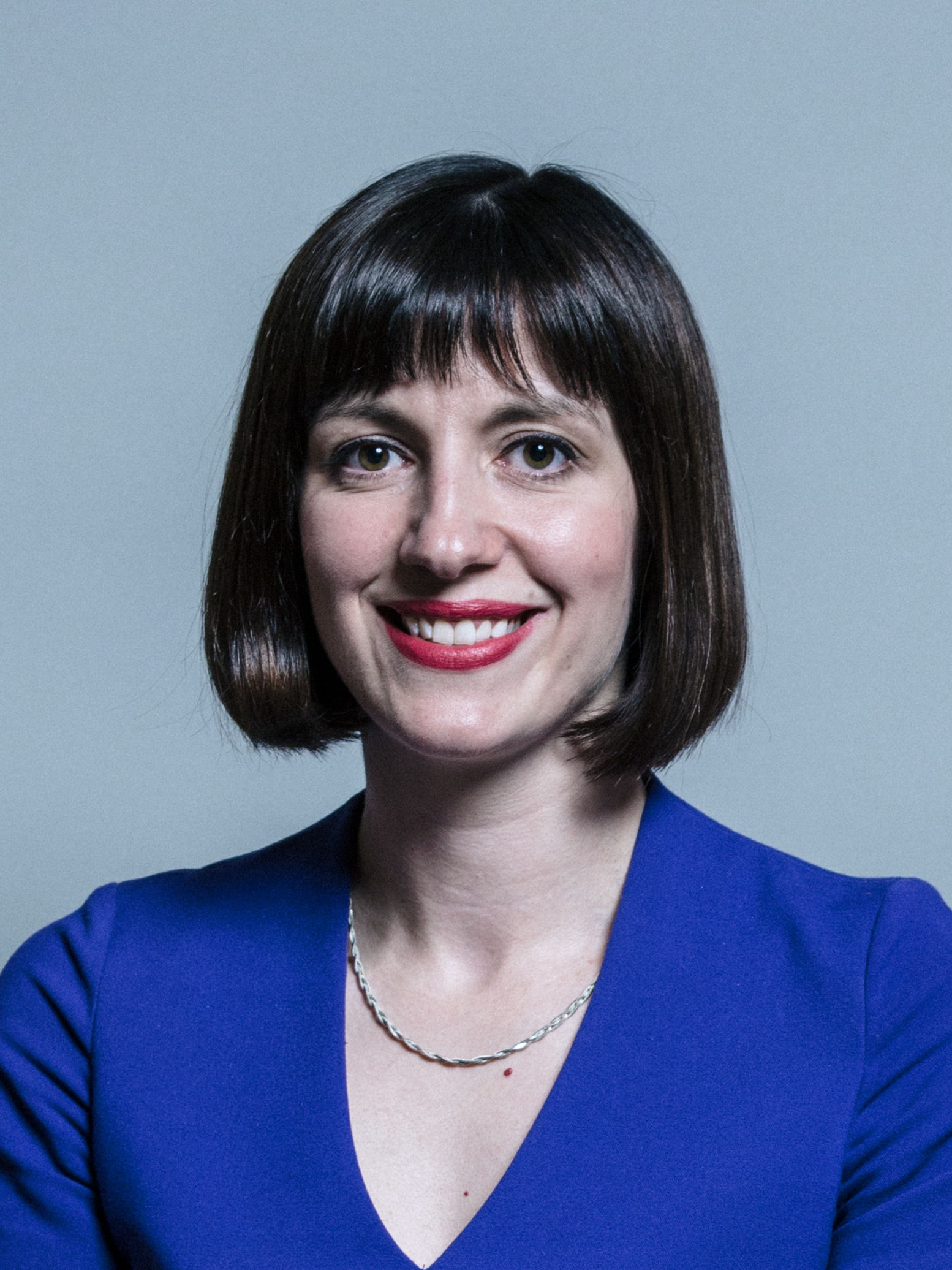Department for Education
The Department for Education is responsible for children’s services and education, including early years, schools, higher and further education policy, apprenticeships and wider skills in England.
Shadow Ministers / Spokeperson
Liberal Democrat
Munira Wilson (LD - Twickenham)Liberal Democrat Spokesperson (Education, Children and Families)
Conservative
Laura Trott (Con - Sevenoaks)Shadow Secretary of State for Education
Green Party
Ellie Chowns (Green - North Herefordshire)Green Spokesperson (Education)
Liberal Democrat
Lord Mohammed of Tinsley (LD - Life peer)Liberal Democrat Lords Spokesperson (Education)
Junior Shadow Ministers / Deputy Spokesperson
Conservative
Baroness Barran (Con - Life peer)Shadow Minister (Education)
Saqib Bhatti (Con - Meriden and Solihull East)
Shadow Minister (Education)
Ministers of State
Baroness Smith of Malvern (Lab - Life peer)Minister of State (Education)
Georgia Gould (Lab - Queen's Park and Maida Vale)
Minister of State (Education)
Parliamentary Under-Secretaries of State
Seema Malhotra (LAB - Feltham and Heston)Parliamentary Under-Secretary of State (Department for Education) (Equalities)
Josh MacAlister (Lab - Whitehaven and Workington)
Parliamentary Under-Secretary (Department for Education)
Olivia Bailey (Lab - Reading West and Mid Berkshire)
Parliamentary Under-Secretary of State (Department for Education) (Equalities)
11:25
Written Evidence
The Education Committee is looking to examine how artificial intelligence (AI) and EdTech are reshaping education across England, from early …
To ask the Secretary of State for Education, what recent assessment she has made of the adequacy of guidelines on …
These Regulations, which apply in England only, amend the Her Majesty’s Chief Inspector of Education, Children’s Services and Skills (Fees …
A Bill to make provision about the safeguarding and welfare of children; about support for children in care or leaving …
12:26
Department for Education Commons Appearances
Oral Answers to Questions is a regularly scheduled appearance where the Secretary of State and junior minister will answer at the Dispatch Box questions from backbench MPs
Other Commons Chamber appearances can be:- Urgent Questions where the Speaker has selected a question to which a Minister must reply that day
- Adjornment Debates a 30 minute debate attended by a Minister that concludes the day in Parliament.
- Oral Statements informing the Commons of a significant development, where backbench MP's can then question the Minister making the statement.
Westminster Hall debates are performed in response to backbench MPs or e-petitions asking for a Minister to address a detailed issue
Written Statements are made when a current event is not sufficiently significant to require an Oral Statement, but the House is required to be informed.
Bills currently before Parliament
Department for Education does not have Bills currently before Parliament
Acts of Parliament created in the 2024 Parliament
A bill to transfer the functions of the Institute for Apprenticeships and Technical Education, and its property, rights and liabilities, to the Secretary of State; to abolish the Institute; and to make amendments relating to the transferred functions.
This Bill received Royal Assent on 15th May 2025 and was enacted into law.
Department for Education - Secondary Legislation
Petitions
e-Petitions are administered by Parliament and allow members of the public to express support for a particular issue.
If an e-petition reaches 10,000 signatures the Government will issue a written response.
If an e-petition reaches 100,000 signatures the petition becomes eligible for a Parliamentary debate (usually Monday 4.30pm in Westminster Hall).
(10,079 in the last 7 days)
(4,869 in the last 7 days)
(2,468 in the last 7 days)
(615 in the last 7 days)
(383 in the last 7 days)
(113 in the last 7 days)
(210 in the last 7 days)
(47 in the last 7 days)
(186 in the last 7 days)
(10,079 in the last 7 days)
Petition Closed
Allow parents to take their children out of school for up to 10 days fine free.
Gov Responded - 23 Dec 2024 Debated on - 27 Oct 2025closed 9 months ago
We’re seeking reform to the punitive policy for term time leave that disproportionately impacts families that are already under immense pressure and criminalises parents that we think are making choices in the best interests of their families. No family should face criminal convictions!
Petition Closed
closed 4 months ago
We call on the Government to withdraw the Children's Wellbeing and Schools Bill. We believe it downgrades education for all children, and undermines educators and parents. If it is not withdrawn, we believe it may cause more harm to children and their educational opportunities than it helps
Petition Closed
Retain legal right to assessment and support in education for children with SEND
Gov Responded - 5 Aug 2025 Debated on - 15 Sep 2025closed 4 months, 3 weeks ago
Support in education is a vital legal right of children with special educational needs and disabilities (SEND). We ask the government to commit to maintaining the existing law, so that vulnerable children with SEND can access education and achieve their potential.
Departmental Select Committee
Education Committee
Commons Select Committees are a formally established cross-party group of backbench MPs tasked with holding a Government department to account.
At any time there will be number of ongoing investigations into the work of the Department, or issues which fall within the oversight of the Department. Witnesses can be summoned from within the Government and outside to assist in these inquiries.
Select Committee findings are reported to the Commons, printed, and published on the Parliament website. The government then usually has 60 days to reply to the committee's recommendations.
11 Members of the Education Committee

Education Committee Member since 11th September 2024

Education Committee Member since 21st October 2024

Education Committee Member since 21st October 2024

Education Committee Member since 21st October 2024

Education Committee Member since 21st October 2024

Education Committee Member since 21st October 2024

Education Committee Member since 28th October 2024

Education Committee Member since 28th October 2024

Education Committee Member since 28th October 2025

Education Committee Member since 28th October 2025

Education Committee Member since 1st December 2025
Education Committee: Upcoming Events
Reading for Pleasure
3 Mar 2026, 9:30 a.m.
At 10:00am: Oral evidence
Jonathan Douglas - Chief Executive at The National Literacy Trust
Annie Crombie - Co-Chief Executive at Booktrust
Mrs Debbie Hicks - Creative Director at The Reading Agency
At 11:00am: Oral evidence
Luke Taylor - Senior Researcher at Centre for Social Justice (CSJ)
Ellen Broomé - Chief Executive at British Dyslexia Association
Ms Anjali Patel - Lead Advisory Teacher at The Centre for Literacy in Primary Education (CLPE)
Onyinye Iwu - children's author, illustrator and art teacher at (None)
View calendar - Save to Calendar
Education Committee: 9 Current Inquiries
Education Committee: Previous Inquiries
50 most recent Written Questions
(View all written questions)Young people have consistently expressed a strong desire for more education on climate change, nature and sustainability. Teachers have also highlighted that limited visibility and emphasis on climate topics in the national curriculum has made it difficult to develop effective provision in this area.
Climate education was already present in the science and geography curricula. The Curriculum and Assessment Review recommended stronger climate education and sustainability content across the curriculum, with detailed engagement and earlier sequencing with climate education in subjects such as geography, science, design and technology and citizenship.
Work is now underway to embed content on climate change, nature and sustainability across the curriculum and sequence knowledge throughout the key stages.
Funding is already committed for the National Education Nature Park to provide curriculum-linked activities and resources for all key stages, and for supporting climate action plans via the Climate Ambassador Programme and Sustainability Support for Education. Climate action plans encourage settings from early years to further education to consider how they take a holistic approach to climate across four key pillars of adaptation, biodiversity, curriculum and decarbonisation.
Minister of State (Education)
Young people have consistently expressed a strong desire for more education on climate change, nature and sustainability. Teachers have also highlighted that limited visibility and emphasis on climate topics in the national curriculum has made it difficult to develop effective provision in this area.
Climate education was already present in the science and geography curricula. The Curriculum and Assessment Review recommended stronger climate education and sustainability content across the curriculum, with detailed engagement and earlier sequencing with climate education in subjects such as geography, science, design and technology and citizenship.
Work is now underway to embed content on climate change, nature and sustainability across the curriculum and sequence knowledge throughout the key stages.
Funding is already committed for the National Education Nature Park to provide curriculum-linked activities and resources for all key stages, and for supporting climate action plans via the Climate Ambassador Programme and Sustainability Support for Education. Climate action plans encourage settings from early years to further education to consider how they take a holistic approach to climate across four key pillars of adaptation, biodiversity, curriculum and decarbonisation.
Minister of State (Education)
Reducing the interest rate charged to existing student loan borrowers would lead to reduced future repayments due to some borrowers paying off their loans faster, and therefore represent a cost to the public purse.
Increasing the maximum period before student loans are written off for existing borrowers would generate a saving for public finances due to additional repayments being made by borrowers who would otherwise have had their loans written off.
Plan 5 loans were introduced by the previous government for new undergraduate students starting courses from the 2023/24 academic year onwards and, compared to the Plan 2 loans they replaced, combine reduced interest rates with a ten year extension to the loan repayment term and a lower repayment threshold. Impacts were published here: https://www.gov.uk/government/publications/higher-education-reform-equality-impact-assessment.
Parliamentary Under-Secretary (Department for Education)
Following the independent Curriculum and Assessment Review we are revising the national curriculum. We will publicly consult from summer 2026, and fully implement the new full national curriculum for first teaching from September 2028.
Our refreshed national curriculum will strengthen pupils’ understanding of British heritage, particularly through a robust understanding of our nation’s history, through teaching of our fundamental British values in citizenship, and in English through drawing on a recognised body of English literature.
We will support teachers to draw on content that meets the needs of their pupils and embodies a modern and forward-looking Britain.
Minister of State (Education)
On Wednesday 11 February, the department set out our ambition that, in time, every secondary school will have an inclusion base.
Where new places are needed, this can be supported by the £3.7 billion in high needs capital that we are investing between 2025/26 and 2029/30. This funding is allocated to local authorities, who know their schools and will determine how best to spend funding to meet local need. £740 million of this funding has already been allocated, and allocations for 2026/27 will be published in the spring.
Minister of State (Education)
The Initial Teacher Training and Early Career Framework (ITTECF) is universal and designed to work for all new teachers regardless of subject, phase, or school. Whilst the ITTECF underpins what all new teachers should learn, it is not a curriculum. Training providers and schools can design a curriculum based on the ITTECF and which is responsive to the needs of the participants and individual school settings.
Beyond the ITTECF, decisions relating to teachers’ professional development rest with schools, headteachers, and teachers themselves as they are in the best position to judge their own requirements.
We recognise that continuous improvement is essential in transforming the training and support for all new teachers, and to review the experiences and needs of early career teachers as well as trainees. This is why we have committed to a full review of the programme in 2027 to ensure it continues to provide the best possible support for trainees and early career teachers.
Minister of State (Education)
We recognise the importance of clear training routes to ensure schools have the skilled teachers they need. The Teacher Degree Apprenticeship enables trainees to gain a full undergraduate degree alongside Qualified Teacher Status while working in a school.
To be eligible, applicants must meet the entry requirements set out in the Initial Teacher Training criteria and the learner eligibility requirements set out in the Apprenticeship Funding Rules. Individuals with an existing Level 5 qualification may apply. More information on eligibility and how to apply is available on the Get Into Teaching website here: https://getintoteaching.education.gov.uk/.
Minister of State (Education)
The department is committed to improving support for all children and young people with special educational needs and disabilities (SEND), including pupils with speech and language needs.
Courses must incorporate the minimum entitlement set out in the Initial Teacher Training and Early Career Framework. It remains for individual providers to design courses that are appropriate to the needs of trainees and for the subject, phase and age range that the trainees will be teaching.
Ofsted’s recent report on thematic monitoring visits found that, in the majority of the providers visited, the coverage of SEND in Initial Teacher Training is comprehensive and well integrated into programmes in the primary and secondary phases.
We have recently reviewed the content of the Initial Teacher Training and Early Career Framework, adding significantly more content related to adaptive teaching and improving inclusivity for pupils with SEND. We have also committed to a further full review of early career teacher training in 2027, which will include a focus on SEND.
This will complement work to upskill the sector on best practice for effective teaching for all pupils, including those with SEND, such as a review of our suite of national professional qualifications and a £200 million training package to upskill staff in every school, college and nursery.
Minister of State (Education)
The department is committed to improving support for all children and young people with special educational needs and disabilities (SEND), including pupils with speech and language needs.
Courses must incorporate the minimum entitlement set out in the Initial Teacher Training and Early Career Framework. It remains for individual providers to design courses that are appropriate to the needs of trainees and for the subject, phase and age range that the trainees will be teaching.
Ofsted’s recent report on thematic monitoring visits found that, in the majority of the providers visited, the coverage of SEND in Initial Teacher Training is comprehensive and well integrated into programmes in the primary and secondary phases.
We have recently reviewed the content of the Initial Teacher Training and Early Career Framework, adding significantly more content related to adaptive teaching and improving inclusivity for pupils with SEND. We have also committed to a further full review of early career teacher training in 2027, which will include a focus on SEND.
This will complement work to upskill the sector on best practice for effective teaching for all pupils, including those with SEND, such as a review of our suite of national professional qualifications and a £200 million training package to upskill staff in every school, college and nursery.
Minister of State (Education)
Physical activity is an important part of a healthy lifestyle that plays a role in tackling childhood obesity.
Too many children and young people do not meet the Chief Medical Officer’s recommendation of 60 minutes of daily physical activity. The department is taking action to ensure all children and young people have access to high quality PE, physical activity and sport.
Good PE lessons are important in securing a solid foundation for leading active lives. That is why we are reforming the PE curriculum to support participation and development across all four key stages.
We are setting up a new PE and School Sport Partnerships Network, which will bring together schools, grass-roots clubs, and sport national governing bodies, so children and young people get a range of opportunities to take part in sport and physical activity inside and outside of school.
Minister of State (Education)
Ministers in the Department for Education have regular discussions with officials, external experts and ministerial colleagues on a range of issues, including national security, defence and resilience, and associated public communications.
As set out in the Strategic Defence Review, the national conversation will be a multi-year engagement designed to embed a whole-of-society approach, where the government, businesses, and the public all play a part in strengthening our resilience. This addresses the risks we face, including threats below and above the threshold of an armed attack.
Minister of State (Education)
The department does not hold the information requested.
Where the department is notified of a significant safety issue with a school building that cannot be managed within local resources, we consider additional support on a case-by-case basis. We work closely with these responsible bodies and schools to minimise the impact of closures and ensure continuity of education for pupils.
Parliamentary Under-Secretary (Department for Education)
At present, there are 675 Family Hubs in 88 local authorities funded by the department. Of these, based on the Office of National Statistics classification of Rural and Urban, 627 are based in urban areas and 48 are based in rural areas.
The department has set a clear ambition for 70% of hubs to be in the 30% most disadvantaged areas. From April we will be rolling out hubs nationally, meaning they will be in every local authority.
Parliamentary Under-Secretary of State (Department for Education) (Equalities)
The department has published detailed plans on how we will recruit and retain more teachers in our 6,500 additional teachers delivery plan, which is available here: https://www.gov.uk/government/publications/every-child-achieving-and-thriving. Better retention of teachers and leaders keeps the skills and expertise they have developed in classrooms, underpinning high quality education for every child.
We will promote best practice in workload and wellbeing management, including flexible working opportunities, and tackle the external pressures where schools are filling the gaps.
The department also recognises the important role which pay, and financial reward play in attracting and retaining teachers. We are offering targeted retention incentives worth up to £6,000 after tax for the subjects and areas with greatest need, and we have implemented above inflation pay increases over the last two pay rounds where we accepted the School Teachers' Review Body recommendation of a nearly 10% award for school teachers and leaders
The last workforce census (June 2025) reported one of the lowest leaver rates since 2010, with 1,700 fewer teachers leaving the state-funded sector. More teachers are also returning to state schools than at any point in the last ten years. The latest data showed 17,274 teachers returned to the classroom.
Minister of State (Education)
The department has published detailed plans on how we will recruit and retain more teachers in our 6,500 additional teachers delivery plan, which is available here: https://www.gov.uk/government/publications/every-child-achieving-and-thriving. Better retention of teachers and leaders keeps the skills and expertise they have developed in classrooms, underpinning high quality education for every child.
We will promote best practice in workload and wellbeing management, including flexible working opportunities, and tackle the external pressures where schools are filling the gaps.
The department also recognises the important role which pay, and financial reward play in attracting and retaining teachers. We are offering targeted retention incentives worth up to £6,000 after tax for the subjects and areas with greatest need, and we have implemented above inflation pay increases over the last two pay rounds where we accepted the School Teachers' Review Body recommendation of a nearly 10% award for school teachers and leaders
The last workforce census (June 2025) reported one of the lowest leaver rates since 2010, with 1,700 fewer teachers leaving the state-funded sector. More teachers are also returning to state schools than at any point in the last ten years. The latest data showed 17,274 teachers returned to the classroom.
Minister of State (Education)
The department has published detailed plans on how we will recruit and retain more teachers in our 6,500 additional teachers delivery plan, which is available here: https://www.gov.uk/government/publications/every-child-achieving-and-thriving. Better retention of teachers and leaders keeps the skills and expertise they have developed in classrooms, underpinning high quality education for every child.
We will promote best practice in workload and wellbeing management, including flexible working opportunities, and tackle the external pressures where schools are filling the gaps.
The department also recognises the important role which pay, and financial reward play in attracting and retaining teachers. We are offering targeted retention incentives worth up to £6,000 after tax for the subjects and areas with greatest need, and we have implemented above inflation pay increases over the last two pay rounds where we accepted the School Teachers' Review Body recommendation of a nearly 10% award for school teachers and leaders
The last workforce census (June 2025) reported one of the lowest leaver rates since 2010, with 1,700 fewer teachers leaving the state-funded sector. More teachers are also returning to state schools than at any point in the last ten years. The latest data showed 17,274 teachers returned to the classroom.
Minister of State (Education)
The department takes the wellbeing and mental health of teachers very seriously.
We have worked with the sector to develop the Education Staff Wellbeing Charter which sets out commitments from the department, Ofsted, schools and colleges to protect and promote staff wellbeing. The charter can be used to inform a whole school or college approach to wellbeing. Over 4,300 schools and colleges have signed up.
The department has funded a mental health lead resource hub to support mental health leads which is available here: https://www.mentallyhealthyschools.org.uk/whole-school-or-college-resources/. This includes resources to support staff development and wellbeing. The department also signposts to a range of mental health resources, including Education Support’s free 24-hour helpline.
From 2027, we will be investing £1 million additional funding each year to provide up to 2,500 leaders annually with support to develop new strategies to manage their mental health, resilience and capacity. This builds on our current £1.5 million investment for professional supervision for school and college leaders, delivered by Education Support. Over 1,400 leaders have benefitted since April 2024.
We are tackling the wider pressures on teachers and leaders. The Child Poverty Strategy, the introduction of our strategy for ‘Giving every child the best start in life’, reform to children’s social care, and the expansion of access to specialist mental health professionals will enhance teachers’ day-to-day experience and strengthen their ability to deliver.
Minister of State (Education)
Effective early identification and intervention is critical in improving the outcomes of children and young people with special educational needs and disabilities (SEND). Access to support should not be dependent on a child or young person having a diagnosis, and a diagnosis alone does not help a teacher know what strategies to use to support that child in the classroom.
As set out in the SEND reform consultation document “Putting Children and Young People First”, the department will develop National Inclusion Standards. These will set out evidence-informed tools, strategies and approaches for educators to draw on to identify and support children and young people with additional needs, before those needs escalate. By 2028, we will have invested up to £15 million to build the evidence base for, and then provide, National Inclusion Standards.
In addition, government-backed research delivered by UK Research Innovation in partnership with the department will aim to develop and roll out approaches for the early identification, strengths and needs assessment, and support of children and young people with special educational needs.
The department and NHS England continue to track the progress that the Surrey Local Area Partnership is making following its Ofsted/CQC SEND inspection in September 2023, which found inconsistent experiences and outcomes for children and young people with SEND, alongside providing on-going advice, support and challenge.
Minister of State (Education)
Effective early identification and intervention is critical in improving the outcomes of children and young people with special educational needs and disabilities (SEND). Access to support should not be dependent on a child or young person having a diagnosis, and a diagnosis alone does not help a teacher know what strategies to use to support that child in the classroom.
As set out in the SEND reform consultation document “Putting Children and Young People First”, the department will develop National Inclusion Standards. These will set out evidence-informed tools, strategies and approaches for educators to draw on to identify and support children and young people with additional needs, before those needs escalate. By 2028, we will have invested up to £15 million to build the evidence base for, and then provide, National Inclusion Standards.
In addition, government-backed research delivered by UK Research Innovation in partnership with the department will aim to develop and roll out approaches for the early identification, strengths and needs assessment, and support of children and young people with special educational needs.
The department and NHS England continue to track the progress that the Surrey Local Area Partnership is making following its Ofsted/CQC SEND inspection in September 2023, which found inconsistent experiences and outcomes for children and young people with SEND, alongside providing on-going advice, support and challenge.
Minister of State (Education)
As set out in the Every Child Achieving and Thriving White Paper, we are placing collaboration at the heart of the system by moving to all schools being part of school trusts, which are rooted in their community and equipped to innovate for all children. To help achieve this, we have committed to working with the sector to update co-operative school trust model articles of association, so this model can effectively support purposeful, diverse and large-scale collaboration.
Minister of State (Education)
High and rising school standards, with excellent foundations in reading and writing, are at the heart of the government’s mission to break down barriers to opportunity and give every child the best start in life.
The English Hubs programme supports the teaching of phonics, early language development, and reading. There are several English Hubs operating in the north west, including Orgill English Hub, St John Vianney English Hub, and the Arch English Hub.
This financial year, we have committed £28.3 million to drive high and rising standards in reading and writing. This funding will deliver a range of support for schools, including new training for primary schools, delivered through the English Hubs programme, to help children progress from the early stages of phonics through to reading fluently by the time they leave primary school, and new support and training for secondary schools to support reading at key stage 3.
The department also published a writing framework in July, which will support schools in delivering high quality writing provision across England.
The department is providing £5 million of funding for secondary schools to purchase books and reading material to encourage reading for pleasure. The government has also committed over £10 million in funding to guarantee a library for every primary school by the end of this Parliament, which will be delivered by the Department for Culture, Media and Sport.
Minister of State (Education)
The department is working with other government departments, including the Ministry of Justice and the Department for Culture, Media and Sport (DCMS), as well as the Scottish, Welsh, and Northern Irish devolved governments, to promote the National Year of Reading 2026. This aims to address long term declines in reading enjoyment through engaging new audiences, reshaping public attitudes and building the systems needed to embed lasting, meaningful change.
Cross sector support is vital in tackling the downward trend in reading for pleasure, which is why the Year is operating as a collective impact campaign allowing multiple agencies and partners to participate, including publishers, booksellers, brands, retailers and charities.
The National Year of Reading 2026 will involve activities and events across the UK. You can find more information about the campaign in England, Scotland and Northern Ireland, and in Wales here: https://goallin.org.uk/
The campaign aims for lasting impact. For example, my right hon. Friend, the Chancellor of the Exchequer announced £5 million for secondary schools to purchase books and reading material to encourage reading for pleasure. The government has also committed over £10 million in funding to guarantee a library for every primary school by the end of this parliament, which will be delivered by DCMS.
Parliamentary Under-Secretary (Department for Education)
Supporting the wellbeing of our expert education workforce is critical to this government’s mission to break down the barriers to opportunity for children and young people.
The department tracks teacher wellbeing through the longitudinal study, the Working Lives of Teachers and Leaders. Wave 4 shows improved wellbeing across all Office for National Statistics (ONS)-validated personal wellbeing measures in 2025. Average life satisfaction, happiness, and feelings of life being worthwhile all increased while average anxiety decreased.
Another means by which we commission research is by including ONS-validated personal wellbeing questions in the School and College Voice Survey to capture seasonal differences. The latest data shows that all wellbeing measures remain broadly in line with the same period last year.
The ‘Every Child Achieving and Thriving’ white paper announced £1 million of additional funding each year to provide up to 2,500 leaders with access to a safe and confidential space to develop new strategies to manage their resilience and capacity.
The Education Staff Wellbeing Charter sets out commitments from the department, Ofsted, schools and colleges to promote staff wellbeing. Over 4,300 schools and colleges have signed up.
We are tackling the wider pressures on teachers and leaders. The Child Poverty Strategy, the introduction of our strategy for ‘Giving every child the best start in life’, reform to children’s social care, and the expansion of access to specialist mental health professionals will enhance teachers’ day-to-day experience and strengthen their ability to deliver.
Minister of State (Education)
High quality professional development is important for teachers at all stages of their careers, ensuring they receive appropriate support and can continually improve their practice. The department offers five leadership National Professional Qualifications (NPQs), which help boost teachers’ and leaders’ knowledge and confidence as they progress into senior leadership roles, alongside five specialist NPQs for those who want to broaden their existing knowledge, expertise, and skills in specialist areas of leadership practice outside traditional leadership roles.
We are currently reviewing the NPQ suite to ensure courses remain up to date with best practice and evidence, support clear progression between leadership levels, and draw on insights from programmes such as the School Trust CEO programme
We will deliver a targeted package of interventions for Excellence in Leadership that update standards, strengthen professional development and support wellbeing. This includes additional investment in an early headship coaching, a new mentoring framework, and piloting a targeted place-based headteacher retention incentive. Together, these interventions reflect the government’s commitment to supporting high-quality leadership across the system.
Minister of State (Education)
Schools are not responsible for clinical healthcare tasks. Healthcare tasks can be delegated to staff in schools and other education settings where the responsible healthcare professional considers delegation safe and appropriate.
The Nursing and Midwifery Council (NMC) and the Health and Care Professions Council (HCPC) both include a regulatory standard requiring registrants to delegate only when they are satisfied that the other person is competent to carry out the delegated task safely and require the healthcare practitioner to supervise and support those who are delegated to. These are found in the NMC Code, which is available here: https://www.nmc.org.uk/standards/code/, and the HCPC Standards, available at: https://www.hcpc-uk.org/standards/standards-of-conduct-performance-and-ethics/.
Minister of State (Education)
To support children with special educational needs and disabilities (SEND), we will help mainstream settings to make the necessary changes to embed inclusive practice. We will develop new National Inclusion Standards to bring greater clarity and evidence to this space. These will set out, for the first time, support that should be available in every mainstream setting, and we will appoint an expert panel to develop and make recommendations regarding the content of the National Inclusion Standards.
The SEND Code of Practice provides statutory guidance for organisations supporting children with SEND. We have committed to updating the Code to reflect changes in the SEND system and findings of recent independent scrutiny, including from the Education Select Committee. The updated Code will clarify responsibilities for mainstream settings and establish a consistent approach to supporting children with SEND.
We are consulting on proposals to reform the SEND system, and the consultation is accessible at: https://consult.education.gov.uk/send-strategy-division/send-reform-putting-children-and-young-people-firs/. We will undertake a separate, full public consultation on the proposed changes to the Code of Practice to reflect best practice and the views of children and young people, families and professionals.
Minister of State (Education)
The government is committed to strengthening pupils’ foundational understanding of financial education in mathematics and citizenship following the publication of the Curriculum and Assessment Review's final report in November 2025. From budgeting to understanding credit, all children will learn about the fundamentals of money and develop the skills needed to succeed in the modern world.
My department will engage with sector experts and young people in how best to reflect this in the updated curriculum. There will be public consultation on updated curriculum Programmes of Study in 2026, seeking views on the content before they are finalised. We intend that the new financial education will be taught for the first time from September 2028.
Minister of State (Education)
This government has published its education estates strategy backed by a 10 year plan to deliver a decade of renewal to transform schools and colleges in England. It is supported by unprecedented long-term funding through to 2034/35. We are investing almost £3 billion per year by 2034/35 in capital maintenance for schools and colleges, rising from £2.4 billion in 2025/26.
We are also launching a new Renewal and Retrofit Programme, backed by over £700 million to 2029/30, to improve the condition of school and college buildings, increase resilience to climate change and protect schools from flooding so buildings can last for decades to come and are net zero ready. The Programme will start with schools in the East Midlands, Yorkshire and the Humber and the South East, and will be expanded from 2027 to other regions in England. We will set out further details in due course on how schools and colleges join the programme from 2027.
Parliamentary Under-Secretary (Department for Education)
This government has committed to strong foundations in reading and writing for all children, to help every child achieve and thrive at school.
We know that reading for pleasure is hugely important and brings a range of benefits, including strong links with attainment, wellbeing, empathy, confidence, and aptitude for learning, with reading holding the key to accessing the rest of the curriculum. However, recent evidence shows that only one in three children report enjoying reading in their free time with just one in five reading daily. This is even lower for certain groups, for example, in 2025, just 25.7% of boys aged 8-18 said they enjoy reading, compared to 39.1% of girls.
The National Year of Reading 2026 is a UK wide campaign to address the decline in reading for pleasure. It includes a major physical and online marketing campaign, as well as exciting events, webinars, resources, and activities in communities, libraries, schools and early years settings throughout the year. It encourages people of all ages to “Go All In” and explore reading as a way to deepen their interests and passions.
As part of the National Year of Reading, we are investing an additional £5 million for secondary schools to purchase books and other reading material to promote reading enjoyment amongst their pupils. This funding will be distributed during 2026, and further details will be communicated to schools in due course.
In addition to this, we have committed over £10 million, via the Dormant Assets Strategy, to ensure every primary school in England has a library by the end of this parliament.
These initiatives demonstrate our commitment to ensuring that every child has access to high-quality reading opportunities, to inspire a love of reading that lasts a lifetime. We also look forward to engaging with the Education Select Committee’s inquiry into Reading for Pleasure and reviewing its findings.
Parliamentary Under-Secretary of State (Department for Education) (Equalities)
The department and NHS England work together to support and challenge local areas to improve their special educational needs and disabilities (SEND) service delivery where required. This includes monitoring, supporting and challenging any areas of identified weakness, both following an area SEND inspection by Ofsted and the Care Quality Commission, or if those areas are identified outside of inspection timescales.
Where a local authority does not meet its duties, including in relation to securing provision in accordance with education, health and care plans, the department can take action that prioritises children’s needs and supports local areas to bring about rapid improvement. This includes a range of universal, targeted and intensive support through departmental programmes, such as our expert advisers and commissioners.
Minister of State (Education)
We have set an ambition to have two-thirds (66.7%) of young people participating in higher-level learning, academic, technical, or an apprenticeship, by age 25.
The Post-16 Education and Skills White Paper sets out our path to meeting that ambition, by raising the status of further education, strengthening our world-leading higher education sector, and introducing more support and flexibility for learners.
We are delivering these reforms at pace, with rapid progress across funding, policy development and key launches that are already impacting providers and learners:
- We are cracking down on rogue university franchising and in November we published our response to the consultation on Franchising in Higher Education.
- We are delivering on our commitment to expand the TEC programme. In December, we launched applications to become a Wave 2 TEC, and announced CTECs allocations. The national bidding round for Post‑16 and Construction Skills Capacity Funding in non‑devolved areas opened in February.
- In January, we launched the tender for technical and vocational subject teaching professional development, laid regulations for Initial Teacher Education reform, and refreshed the Teach in FE campaign.
- We have consulted on Post-16 Level 3 and Below Pathways.
- At Autumn Budget 2025, we announced over £1.5 billion of funding is being made available across the spending review period into the Youth Guarantee and the Growth and Skills Levy. This funds £820 million for the Youth Guarantee, ensuring all young people aged 16-24 years old have access to the support they need to earn and learn.
Parliamentary Under-Secretary (Department for Education)
The department aims to revise the School Food Standards and is engaging with stakeholders, including academics and nutrition professionals, to ensure they support our work to create the healthiest generation of children in history.
Schools are responsible for their school meals service and how and where they choose to buy their produce. We encourage schools to voluntarily follow the Government Buying Standards for food and catering, which includes lots of advice around sustainable sourcing. Additionally, we are working with the Department for Environment, Food and Rural Affairs to support schools to buy more of the fresh, high-quality ingredients produced in the UK when sourcing their meals as part of the government’s Food Strategy.
Parliamentary Under-Secretary of State (Department for Education) (Equalities)
The government is committed to creating opportunities for all children so that they can achieve and thrive. The department’s home-to-school travel policy aims to make sure that no child is prevented from accessing education by a lack of transport.
The eligibility criteria are set out in the Education Act 1996 and were amended by the Education and Inspections Act 2006. Whilst the statutory walking distances have been in place since the 1940s, children within walking distance can now also have free travel if they cannot walk to school because of their special educational needs, disability or mobility problem, or because the route is unsafe. Extended rights to home to school travel now support school choice for children from low-income families where the cost of transport may otherwise be a barrier. We do not currently have any plans to change the existing statutory framework for home to school travel.
Minister of State (Education)
The statutory guidance 'early years foundation stage (EYFS) framework' sets education requirements that early years settings must follow to ensure that every child aged 0 to 5 has the best start in life. The EYFS recognises that it is crucial for young children to begin to develop a life-long love of reading and requires practitioners to read frequently to children, and actively engage them in a broad selection of stories, non-fiction, rhymes and poems. The framework can be found in full at: https://www.gov.uk/government/publications/early-years-foundation-stage-framework--2
The department provides a range of online resources which support settings to deliver the statutory EYFS requirements well for all children, including the ‘Development Matters’ guidance, the department’s reading framework, and the National Year of Reading website. The National Year of Reading is a UK-wide campaign aiming to tackle long-term declines in reading enjoyment, with early years being one of the priority groups. It includes a major physical and online marketing campaign, as well as exciting events, webinars, resources, and activities in communities, libraries, schools and early years settings throughout the year.
Parliamentary Under-Secretary of State (Department for Education) (Equalities)
The statutory guidance 'early years foundation stage (EYFS) framework' sets education requirements that early years settings must follow to ensure that every child aged 0 to 5 has the best start in life. The EYFS recognises that it is crucial for young children to begin to develop a life-long love of reading and requires practitioners to read frequently to children, and actively engage them in a broad selection of stories, non-fiction, rhymes and poems. The framework can be found in full at: https://www.gov.uk/government/publications/early-years-foundation-stage-framework--2
The department provides a range of online resources which support settings to deliver the statutory EYFS requirements well for all children, including the ‘Development Matters’ guidance, the department’s reading framework, and the National Year of Reading website. The National Year of Reading is a UK-wide campaign aiming to tackle long-term declines in reading enjoyment, with early years being one of the priority groups. It includes a major physical and online marketing campaign, as well as exciting events, webinars, resources, and activities in communities, libraries, schools and early years settings throughout the year.
Parliamentary Under-Secretary of State (Department for Education) (Equalities)
The department engages regularly with teachers and headteachers and their representative bodies on a range of issues, including pupil behaviour.
All schools are required by law to have a behaviour policy which outlines effective strategies that encourage good behaviour.
The department’s existing ‘Behaviour in schools’ guidance states that schools should make clear to pupils that good behaviour does not end at the school gate. Schools have the power to sanction pupils for misbehaviour outside of the school premises to a reasonable extent.
To support schools, the department is establishing 93 new regional improvements for standards and excellence Attendance and Behaviour Hubs. These hubs will be led by schools with excellent attendance and behaviour practice which will work closely with other schools to help improve their approach.
Parliamentary Under-Secretary of State (Department for Education) (Equalities)
The department is taking a range of measures to tackle persistent absence in both primary and secondary schools. The statutory guidance ‘Working together to improve school attendance’ requires schools to take a support-first approach, including appointing a Senior Attendance champion, publishing a clear and easily-accessible attendance policy and to work in partnership with local authorities to reduce levels of absence. The full guidance is available at: https://assets.publishing.service.gov.uk/media/66bf300da44f1c4c23e5bd1b/Working_together_to_improve_school_attendance_-_August_2024.pdf.
Schools, trusts and local authorities also benefit from the department’s real-time attendance data tools and attendance toolkits, which enable early identification of emerging issues and support adoption of effective practice. Bespoke minimum attendance targets further assist schools in returning to pre-pandemic levels.
To support schools requiring additional intervention, the department launched new regional improvements for standards and excellence (RISE) attendance and behaviour hubs in January, with the capacity to support over 3,000 schools and deliver targeted assistance to up to 500. The national attendance mentoring programme is providing one-to-one support for 10,000 persistently absent pupils.
We are also addressing wider barriers through expanded primary breakfast clubs and increased access to specialist mental health professionals in every school.
Parliamentary Under-Secretary of State (Department for Education) (Equalities)
High-quality early years education is central to our mission to break down barriers to opportunity, give every child the best possible start in life, and is essential to our Plan for Change. This government is boosting availability and access through the school-based nurseries programme, supporting school led-provision and private, voluntary and independent (PVI) providers and childminders operating from school sites. There is no available data on any replacement of provision.
27 of the 300 successful schools in Phase 1 are working in partnership with a private, voluntary or independent provider, and schools can continue to partner with them and childminders for future phases. For Phase 1 of the programme, local authorities had to confirm childcare need for the proposed projects. In further phases, we have strengthened their role, asking them to confirm that any new nursery will enhance the local offer and not displace quality provision already in place.
We have already made a real impact, delivering a reported 5,000 new nursery places through Phase 1, and are due to announce successful projects for Phase 2 soon.
Parliamentary Under-Secretary of State (Department for Education) (Equalities)
The department monitors the emerging impacts of artificial intelligence (AI) on education, including risks to academic integrity. Our published policy position on generative AI is evidence-based and sets out clear expectations for schools and colleges on safe, responsible and ethical use.
We work closely with regulators to ensure that academic integrity is protected and that providers have the support they need to prevent and respond to misuse of AI. In 2025 the Joint Council for Qualifications supported by Ofqual updated their guidance for schools on AI use in assessments. This provides clarity for teachers and assessors in identifying and managing potential malpractice and maintaining integrity of assessment. We have also made wider support materials publicly available that help education staff manage risks, promote ethical use, and reinforce robust approaches to detecting and addressing issues.
Parliamentary Under-Secretary of State (Department for Education) (Equalities)
Improving attendance and tackling school exclusion early is central to the government’s mission to break down barriers to opportunity. High-quality, timely data enables early identification of need and delivery of a support-first approach.
Thanks to our world-leading data collection, the department has access to near real-time attendance data for schools, including academies. For each morning and afternoon session, schools must record the relevant attendance and absence code for each pupil. This includes Code E, which is used when a pupil is absent due to suspension or permanent exclusion. Code E is recorded as absence but not classified as unauthorised absence.
Using this attendance data, key actors can take a curious approach to identify patterns in pupil movement that could suggest off-rolling or other concerning practices, including off-site direction and managed moves, and will follow up on a targeted basis with responsible bodies to understand and challenge where there are possible concerns.
Formal data on suspension and permanent exclusion is also collected through the termly school census, which is published two terms in arrears.
Parliamentary Under-Secretary of State (Department for Education) (Equalities)
James McMurdock
(Independent - South Basildon and East Thurrock)
As of February 2026, 486 employees of the department (6%) work remotely because their roles require them to be based at a distance from a departmental office.
All other employees, apart from a small number with homeworking as a reasonable adjustment, are office‑based with access to hybrid working arrangements. Hybrid working arrangements are non-contractual and led by business needs.
Parliamentary Under-Secretary of State (Department for Education) (Equalities)
As part of our Education Estates Strategy, a 10-year plan to transform schools and colleges across England, we will provide targeted support for digital connectivity. As part of this £325 million of funding will be used for the expansion of Connect the Classroom and to support hard to reach schools to access fast, reliable gigabit-capable broadband. New selection criteria will be announced in the summer.
Connect the Classroom is currently supporting schools on the regional improvement for standards and excellence programme, ensuring that poor connectivity isn’t a barrier to school improvement. To date, over £900,000 of Connect the Classroom funding has been spent on schools in South Holland and the Deepings constituency.
Parliamentary Under-Secretary (Department for Education)
The Renewal and Retrofit Programme, backed by £710 million to 2029/30, will be launched from April 2026 to improve the condition of school and college buildings and increase resilience to climate change so that buildings can last for decades and are net zero ready. This funding will also help protect more schools from flooding. The Programme will start with schools in the East Midlands, Yorkshire and the Humber and the South East, and will be expanded from 2027 to other regions in England. The department will set out further details in due course on how schools and colleges can join the Programme from 2027.
We are providing £325 million in additional targeted investment for digital connectivity until 2029/30, including expanding the Connect the Classroom programme. To date, almost £600,000 of Connect the Classroom funding has been provided to schools in the Huntingdon constituency. Through 2026/27, Connect the Classroom will continue to support schools on the regional improvement for standards and excellence programme, with additional selection criteria to be announced in the summer.
Parliamentary Under-Secretary (Department for Education)
The Renewal and Retrofit Programme, backed by £710 million to 2029/30, will be launched from April 2026 to improve the condition of school and college buildings and increase resilience to climate change so that buildings can last for decades and are net zero ready. This funding will also help protect more schools from flooding. The Programme will start with schools in the East Midlands, Yorkshire and the Humber and the South East, and will be expanded from 2027 to other regions in England. The department will set out further details in due course on how schools and colleges can join the Programme from 2027.
We are providing £325 million in additional targeted investment for digital connectivity until 2029/30, including expanding the Connect the Classroom programme. To date, almost £600,000 of Connect the Classroom funding has been provided to schools in the Huntingdon constituency. Through 2026/27, Connect the Classroom will continue to support schools on the regional improvement for standards and excellence programme, with additional selection criteria to be announced in the summer.
Parliamentary Under-Secretary (Department for Education)
The holiday activities and food (HAF) programme provides free nutritious meals, enriching activities, and safe environments to eligible children during the school holidays. The programme is mainly aimed at children in receipt of benefits‑related free school meals, to ensure that funding is focused on the most disadvantaged. Research has shown that the school holidays can be pressure points for some families. Children from households on low incomes are more likely to experience food insecurity, social isolation, reduced physical activity, and fewer opportunities for enriching experiences during the school holidays. HAF directly responds to this by ensuring all sessions include a nutritious meal and enriching and physical activities, benefiting health, wellbeing and learning of those who attend.
In addition, local authorities have discretion to use up to 15% of their funding to provide free or subsidised holiday club places for children who do not meet the eligibility criteria but who the local authority believe could benefit from HAF.
Parliamentary Under-Secretary of State (Department for Education) (Equalities)
The special educational needs and disabilities (SEND) teacher training offer comprises an investment of over £200 million over the course of this Parliament. This significant investment, forms a central pillar of the government’s SEND reform plans, helping to secure a fairer system where effective support is available for every child with SEND from early years to the age of 25.
This training offer will be freely available to all leaders, teachers and teaching assistants working in schools, colleges, childminders and nurseries across England, including those in Eastleigh. Training packages will be developed with the needs of different educators and sectors in mind. Some training will be accessible at any time, while other elements may require registering with a provider. More details on how to access the different packages will be published on GOV.UK in due course.
Minister of State (Education)
The government set out its planned reforms to the special educational needs and disabilities system in the Schools White Paper published on 23 February 2026 here: https://www.gov.uk/government/publications/every-child-achieving-and-thriving.
Further details on the distribution of that funding will be published in the due course.
Minister of State (Education)
In our consultation on special educational needs and disabilities, the department has set out our ambition that, in time, every secondary school will have an inclusion base.
Where new places are needed, this will be supported by the £3.7 billion in high needs capital that we are investing between 2025/26 and 2029/30. This funding is allocated to local authorities, who know their schools and will determine how best to spend funding to meet local need. £740 million of this funding has already been allocated, and allocations for 2026/27 will be published in the spring.
Currently, provision is inconsistent across the country, which is why we are also going to improve data collection on which schools have inclusion bases, so we can make sure that all pupils are given the support they need.
Minister of State (Education)
The department is committed to improving support for all children and young people with special educational needs and disabilities (SEND), including pupils with dyslexia. In January, we announced the most ambitious SEND training offer ever seen in the English education system. Backed by £200 million, the new offer will cover children with SEND from 0 to 25. More details on the training are available at:
https://www.gov.uk/government/news/200-million-landmark-send-teacher-training-programme.
The English Hubs programme is dedicated to improving the teaching of reading. As part of teachers’ continuous professional development, the ‘Reading Ambition for All’ programme will improve outcomes for children in primary who need additional support.
The SEND code of practice is clear that meeting the needs of a child with SEN does not require a diagnostic label or test. Instead, we expect teachers to monitor the progress of all pupils and put support in place where needed.
To identify need, we are strengthening the evidence base to improve early identification in mainstream settings. Recently published evidence reviews will help drive inclusive practices, highlighting what the best available evidence suggests are the most effective tools, strategies and approaches. The ‘What Works in SEND’ research programme is researching tools that settings can use to identify the needs of neurodivergent children and young people.
From 2024, the national professional qualification for special educational needs co-ordinators (SENCOs) became the mandatory qualification for SENCOs, supporting participants to develop the essential knowledge and skills needed to set the strategic direction of SEND policy in schools and understand the conditions in which pupils with SEND can thrive.
Minister of State (Education)
